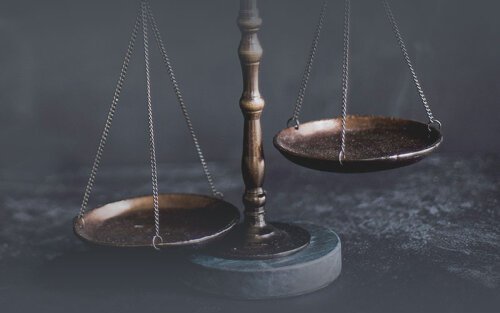Best Appeal Lawyers in Republic of Lithuania
Share your needs with us, get contacted by law firms.
Free. Takes 2 min.
Or refine your search by selecting a city:
List of the best lawyers in Republic of Lithuania
About Appeal Law in Republic of Lithuania
Appeal Law in the Republic of Lithuania allows individuals to challenge decisions made by lower courts or administrative bodies. This process ensures that judicial errors can be reviewed and corrected, promoting fairness and justice. Appeals are integral to the Lithuanian legal system, and they provide an essential mechanism for oversight and correction of judicial mistakes or procedural errors.
Why You May Need a Lawyer
Navigating the appeals process can be complex and time-consuming. Common situations where you may require legal help include:
- An unfavorable decision from a lower court that you believe was incorrect or unjust.
- Procedural errors during your initial trial that affected the outcome of your case.
- Misinterpretation or misapplication of the law by the initial court.
- New evidence has come to light which could potentially change the outcome of your case.
A qualified appeals lawyer can provide invaluable assistance in analyzing your case, drafting and filing the necessary documents, and representing you in court.
Local Laws Overview
Key aspects of local laws relevant to Appeal in Lithuania include:
- The Civil Procedure Code (CPC) and the Criminal Procedure Code (CPC), which outline the specific procedures and timelines for filing an appeal.
- Lithuania’s court hierarchy: cases typically move from district courts to regional courts, and finally to the Lithuanian Supreme Court, depending on the nature and gravity of the case.
- Specific grounds for appeal, such as procedural violations, misapplication of the law, and significant new evidence.
- Time limits for filing an appeal: Missing these deadlines can result in the loss of your right to appeal.
- The necessity to follow precise procedural requirements in filing the appeal to avoid dismissal.
Frequently Asked Questions
What is an appeal?
An appeal is a legal process where a higher court reviews a decision made by a lower court to determine if there were any errors that could change the outcome of the case.
Who can file an appeal in Lithuania?
Any party to a case who is dissatisfied with the decision of a lower court can file an appeal. This includes defendants, plaintiffs, and sometimes third parties affected by the decision.
What are the grounds for filing an appeal?
You can file an appeal if you believe there was a procedural error, misapplication or misinterpretation of the law, or if new evidence has emerged that could affect the case outcome.
How long do I have to file an appeal?
The time limits for filing an appeal vary depending on the type of case and court. It is crucial to consult legal texts or a lawyer to ensure compliance with these timelines.
What documents are needed to file an appeal?
Documents typically include a notice of appeal, the judgment being appealed, any relevant evidence or records, and legal arguments supporting the appeal.
Can I appeal a decision more than once?
Generally, you can appeal once to a higher court. If that court upholds the original decision, further appeals may only be possible under specific circumstances, such as constitutional issues.
Will the appellate court hear new evidence?
Typically, appellate courts do not hear new evidence. They review the record from the lower court to determine if there were errors affecting the outcome.
How long does the appeal process take?
The duration varies depending on the complexity of the case and the court’s schedule. It can range from a few months to over a year.
What are the possible outcomes of an appeal?
The appellate court may affirm the lower court’s decision, reverse it, or remand the case back to the lower court for further proceedings.
Do I need a lawyer to file an appeal?
While not mandatory, it is highly advisable to have a lawyer due to the complexities involved in the appeals process and to improve the chances of a successful outcome.
Additional Resources
- The Lithuanian Supreme Court: Provides detailed information and guidelines on the appeals process.
- Legal Aid Services: Offers free or low-cost legal assistance to those in need, particularly for qualifying individuals.
- Lithuanian Bar Association: Can help you find a certified lawyer specializing in appeals.
- Ministry of Justice of the Republic of Lithuania: Offers resources and information on legal processes, including appeals.
Next Steps
If you need legal assistance for an appeal in Lithuania, consider the following steps:
- Consult with a qualified appeals lawyer to assess the merits of your case.
- Gather and organize all relevant documents and evidence for review.
- Ensure you understand and comply with all procedural requirements and deadlines for filing an appeal.
- Contact local legal aid services if you require financial assistance or cannot afford a private lawyer.
Taking these steps will help you navigate the appeals process more effectively and increase your chances of a successful outcome.
Lawzana helps you find the best lawyers and law firms in Republic of Lithuania through a curated and pre-screened list of qualified legal professionals. Our platform offers rankings and detailed profiles of attorneys and law firms, allowing you to compare based on practice areas, including Appeal, experience, and client feedback.
Each profile includes a description of the firm's areas of practice, client reviews, team members and partners, year of establishment, spoken languages, office locations, contact information, social media presence, and any published articles or resources. Most firms on our platform speak English and are experienced in both local and international legal matters.
Get a quote from top-rated law firms in Republic of Lithuania — quickly, securely, and without unnecessary hassle.
Disclaimer:
The information provided on this page is for general informational purposes only and does not constitute legal advice. While we strive to ensure the accuracy and relevance of the content, legal information may change over time, and interpretations of the law can vary. You should always consult with a qualified legal professional for advice specific to your situation.
We disclaim all liability for actions taken or not taken based on the content of this page. If you believe any information is incorrect or outdated, please contact us, and we will review and update it where appropriate.
Browse appeal law firms by city in Republic of Lithuania
Refine your search by selecting a city.

















